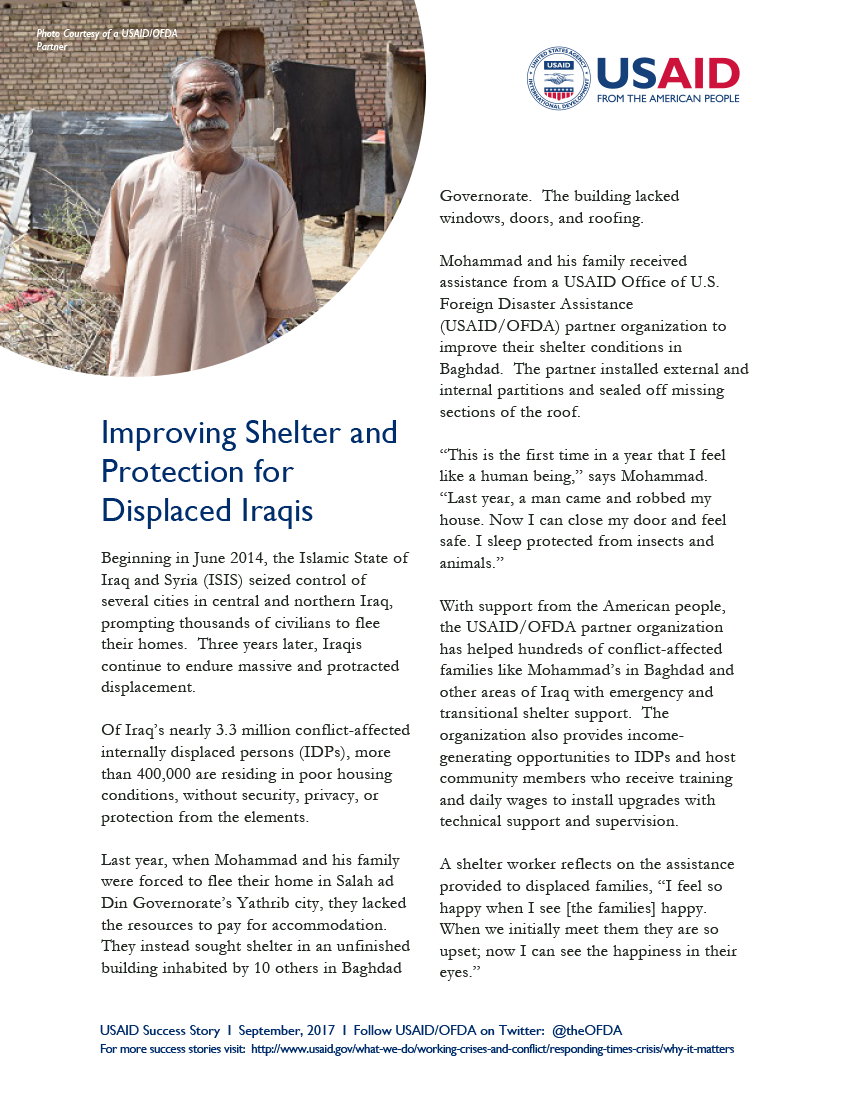- What We Do
- Agriculture and Food Security
- Democracy, Human Rights and Governance
- Economic Growth and Trade
- Education
- Environment and Global Climate Change
- Gender Equality and Women's Empowerment
- Global Health
- Humanitarian Assistance
- Transformation at USAID
- Water and Sanitation
- Working in Crises and Conflict
- U.S. Global Development Lab
Speeches Shim
Beginning in June 2014, the Islamic State of Iraq and Syria (ISIS) seized control of several cities in central and northern Iraq, prompting thousands of civilians to flee their homes. Three years later, Iraqis continue to endure massive and protracted displacement.
Of Iraq’s nearly 3.3 million conflict-affected internally displaced persons (IDPs), more than 400,000 are residing in poor housing conditions, without security, privacy, or protection from the elements.
Last year, when Mohammad and his family were forced to flee their home in Salah ad Din Governorate’s Yathrib city, they lacked the resources to pay for accommodation. They instead sought shelter in an unfinished building inhabited by 10 others in Baghdad Governorate. The building lacked windows, doors, and roofing.
Mohammad and his family received assistance from a USAID Office of U.S. Foreign Disaster Assistance (USAID/OFDA) partner organization to improve their shelter conditions in Baghdad. The partner installed external and internal partitions and sealed off missing sections of the roof.
“This is the first time in a year that I feel like a human being,” says Mohammad. “Last year, a man came and robbed my house. Now I can close my door and feel safe. I sleep protected from insects and animals.”
With support from the American people, the USAID/OFDA partner organization has helped hundreds of conflict-affected families like Mohammad’s in Baghdad and other areas of Iraq with emergency and transitional shelter support. The organization also provides income-generating opportunities to IDPs and host community members who receive training and daily wages to install upgrades with technical support and supervision.
A shelter worker reflects on the assistance provided to displaced families, “I feel so happy when I see [the families] happy. When we initially meet them they are so upset; now I can see the happiness in their eyes.”


Comment
Make a general inquiry or suggest an improvement.